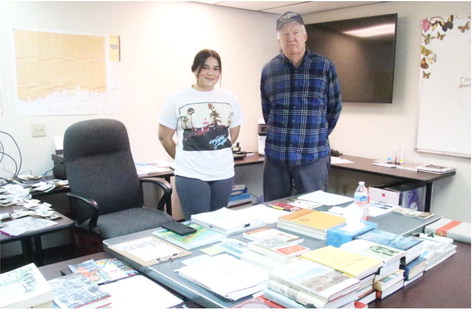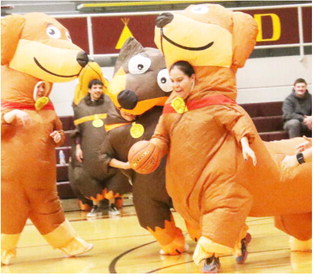RSV Season Is Coming, Protect Our Babies
RSV (respiratory syncytial virus) season spans about six months each year, from November through March. Most of the time RSV causes a mild, cold-like illness, but it can also cause severe illness such as:
• Bronchiolitis (inflammation of the small airways in the lung)
• Pneumonia (infection of the lungs) Two to three out of every 100 infants under six months are hospitalized with RSV every year. Those who are hospitalized may require oxygen, IV fluids (if they aren’t eating and drinking), and mechanical ventilation (a machine to help with breathing). Most improve with this type of supportive care and are discharged in a few days.
Children at greatest risk of severe illness from RSV include: • Infants and young children (the younger the age, the higher the risk)
• American Indian and Alaska Native children
• Children born prematurely • Children with chronic lung disease or congenital (present from birth) heart disease
• Children with weakened immune systems
• Children with severe cystic fibrosis
• Children who have neuromuscular disorders, especially those who have difficulty swallowing or clearing mucus secretions Nearly every child will get RSV by the time they are 2 years old.
Early symptoms of RSV in infants and young children are:
• Runny nose
• Eating or drinking less
• Cough, which may progress to wheezing or difficulty breathing In very young infants (less than 6 months old), RSV may be hard to spot, the symptoms may include:
• Irritability
• Decreased activity
• Eating or drinking less
• Apnea (pauses in breathing for more than 10 seconds) There is now a product available that helps protect babies from RSV. It has only been available for three years. The product is “RSV antibodies.”
In Roosevelt County, Trinity Hospital offers the antibodies for newborns and Roosevelt County Health Department has the antibodies available for babies from the age they are released from the hospital up to 24 months. This allows for protection during both the first and second RSV seasons of the child’s life. According to the CDC, American Indian/Alaska Native children are more vulnerable to RSV disease than other children.
RSV antibodies can be given along with routine vaccinations or as a single medication. Side effects may be rash or infection site redness and swelling.
Talk to your baby’s health care provider or one of the Immunization Nurses at Roosevelt County Health Department about RSV antibodies. They can help protect babies against RSV that may cause serious disease in the lower respiratory tract of infants and children up to 24 months of age. Reach out to Roosevelt County Health Department at 124 Custer St. Suite A in Wolf Point or call 406-653-6223 for more information.

